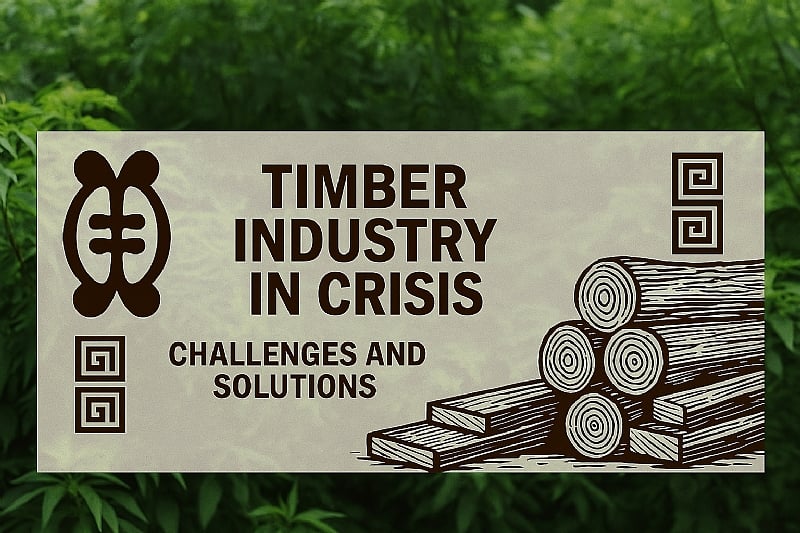Securing Sustainable Forestry through Governance Reform and Merchant Empowerment
🪵Executive Summary
Ghana’s timber industry, once a cornerstone of national export earnings and rural employment, is facing critical decline. Systemic issues—ranging from regulatory breakdowns and unsustainable taxation to foreign encroachment—have crippled legitimate timber merchants and led to the collapse of domestic firms. Urgent reform is required to restore transparency, protect forests, and enable economic resilience in the sector.
Key Challenges
Illicit Forestry Practices: Widespread illegal logging undermines forest preservation and lawful trade. Institutional Weaknesses: The misapplication of forestry regulations and timber permit processes has eroded confidence and fairness. Market Distortion: Escalated stumpage fees and burdensome export taxes render Ghana’s timber less competitive globally. Foreign Monopolization: The outsourcing of container fumigation has increased costs exponentially and weakened local control. Industrial Collapse: A majority of timber firms have ceased operation, displacing skilled labor and stalling sectoral innovation. Capital Flight: Domestic investors have relocated to neighboring countries with friendlier operating environments.
Strategic Recommendations
1. Governance Reset
Reform the Forestry Commission to prioritize accountability, equitable contractor engagement, and community stewardship.
Implement transparent auditing of all timber leases. Reinvigorate local forest management systems with traditional leadership participation.
2. Legal and Operational Reforms
Enforce sustainable logging practices and correct procedural lapses in timber contract issuance.
Fast-track ratification of pending leases to meet international compliance thresholds. Deploy community surveillance units to monitor forest boundaries using GIS mapping.
3. Financial Rationalization
Realign stumpage fees and export levies to reflect regional benchmarks and promote legal trade.
Cap fumigation charges and incentivize local service providers. Create tax holidays for verified sustainable operators.
4. Sustainable Plantation Investments
Launch afforestation partnerships between local contractors, CSOs, and district assemblies.
Encourage youth-led eco-enterprises to restore degraded lands. Reallocate unused concession areas to community cooperatives.
5. Merchant Empowerment & Dialogue
Institutionalize quarterly forums between timber merchants, regulators, and trade experts.
Establish a national timber arbitration desk for dispute resolution. Facilitate digital timber traceability platforms for exports.
Path Forward
The reorientation of Ghana’s timber industry is not merely an economic imperative—it is a moral and ecological necessity. With strategic reforms, transparent governance, and merchant inclusion, Ghana can reclaim its place as a leader in ethical forest trade while protecting future generations.
Retired Senior Citizen
Teshie-Nungua
[email protected]


